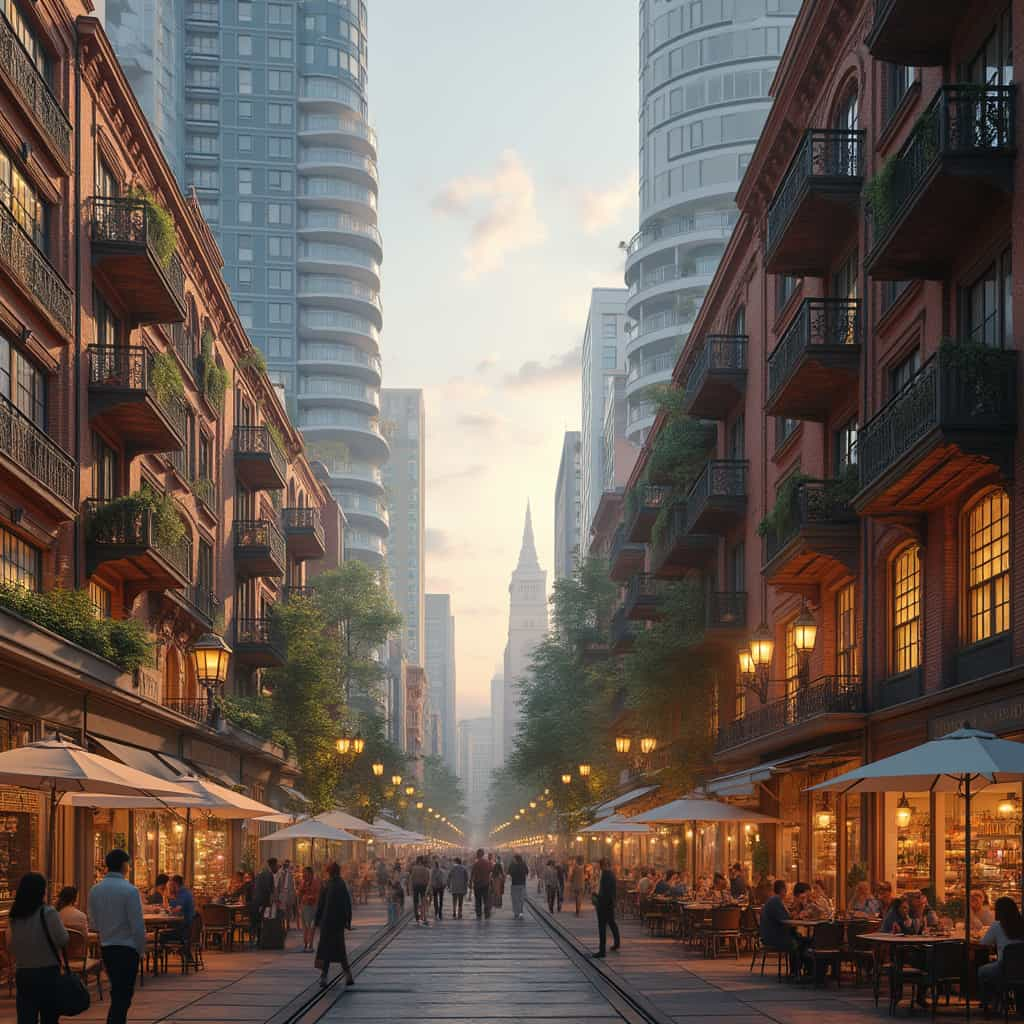Acquiring an apartment in a bustling city center remains a coveted dream for many urban dwellers. The allure of city living—where amenities, entertainment, and employment opportunities converge at one’s doorstep—is undeniable. However, the path to purchasing such a property is often fraught with challenges, primarily related to cost and limited availability. The demand for central locations frequently exceeds the available supply, driving prices upward and making it essential for prospective buyers to navigate the market with strategic acumen.
The financial aspect often casts the longest shadow on potential buyers. City center properties are generally priced at a premium, reflective of their prime location. According to a 2023 report by the Global Real Estate Institute, the median price per square foot in city centers is typically 20% to 50% higher than in suburban or rural areas. This premium is attributed to convenience factors such as proximity to business districts, cultural hotspots, and public transportation. However, several financing options can alleviate the initial financial burden, including government-backed loans, which often offer favorable terms for first-time buyers.
Despite the high costs, the long-term investment benefits cannot be overlooked. Properties in central locations tend to appreciate faster than those in outlying areas, offering potential financial returns over time. Moreover, city center apartments attract a higher caliber of rental clientele, providing landlords with steady rental income. In cities like New York, for instance, historical data has shown a consistent year-over-year increase in property values, making urban real estate a wise investment despite its apparent entry barriers.
The appeal of city lodging extends beyond monetary gain. The vibrant lifestyle, marked by a plethora of dining, shopping, and cultural experiences, contributes significantly to the appeal. Living in a city center often means immediate access to a diverse range of world-class amenities. However, this may come at the cost of peace and solitude, a trade-off acknowledged by not just residents but real estate experts. John Edmunds, a notable urban planning consultant, quips, ‘City center living is not for the faint-hearted. It’s about embracing the energy of urban life fully.’
When comparing apartment proposals, it’s crucial to evaluate beyond the surface cost. Hidden costs, including maintenance fees, property taxes, and insurance premiums, can significantly impact the total expense. New developments might entice buyers with modern amenities and eco-friendly certifications, but these often come with higher associated costs. Conversely, older buildings, while potentially less expensive, might require extensive renovations and upkeep. Therefore, thorough due diligence is imperative to avoid post-purchase surprises.
In cities like London and Tokyo, adaptive reuse of historic buildings has become a popular alternative. These properties offer unique architectural character and are often located in prime areas. Experts argue that while they may present logistical challenges, such as complying with heritage preservation standards, they offer a unique living experience that new builds can’t replicate. Dr. Harriet Thompson, a senior architect with a specialization in urban landscape regeneration, believes that ‘revitalizing older structures breathes new life into a city’s core and offers a unique value proposition to potential buyers.’
Considering the options on the market, prospective buyers often find themselves torn between location, price, and amenities. Modern high-rise apartments offer panoramic views and state-of-the-art facilities, catering to a contemporary lifestyle. These often include 24-hour security, fitness centers, and communal spaces, adding an intrinsic value to the property. On the other hand, boutique residences emphasize exclusivity and personalized spaces, appealing to those looking for a more tailored living environment.
A practical tip for prospective buyers is to engage with local real estate agents who specialize in the city center sector. They can provide invaluable insights into market trends, upcoming developments, and negotiating tactics. Additionally, attending property viewings and open houses can equip buyers with a realistic understanding of what their budget can achieve.
Lastly, while the charm of owning a piece of urban paradise is enticing, a degree of pragmatism must be maintained. Consideration of personal lifestyle preferences, future financial goals, and economic situations is critical in making an informed decision. ‘Buying a city center apartment should be both a lifestyle choice and a strategic investment,’ remarks Sylvia Torres, a respected economist with a focus on urban real estate markets.
Ultimately, the decision to purchase an apartment in the city center is multifaceted, requiring an evaluation of both tangible benefits and emotional fulfillment. The journey, though complex, promises a rewarding outcome for those who navigate it with foresight and preparation.
You may also like
The Perks and Challenges of Buying a Detached House in the Suburbs
Buying a detached house in the suburbs offers a tranquil lifestyle with potential financial benefits. This article delves into cost considerations, advantages, and options for suburban homes, offering a comprehensive comparison of the most appealing market proposals.
Electric and Hybrid Car Market: Guide to Battery Life and Warranties
With the rising popularity of electric and hybrid vehicles, consumers face numerous choices and challenges when purchasing these cars. This article delves into battery longevity, warranty details, and offers a comparison of electric versus hybrid options, including geographical purchase trends and expert insights.
The Diesel vs. Petrol Dilemma: The Complex World of Auto Purchases
This comprehensive guide aims to assist potential car buyers in discerning between diesel and petrol vehicles, outlining market offerings, common pitfalls, and essential checks for both types. By examining industry trends and expert insights, we provide a comparative analysis to aid informed decision-making, spotlighting trusted resources and geographical preferences worldwide.
The Ultimate Guide to Buying Your Ideal Car
Deciphering the task of buying a car, our article simplifies the steps and considerations one must take into account. From defining your needs to finalizing the purchase, we shed light on the complex purchasing process without revealing all the details in the introduction.
